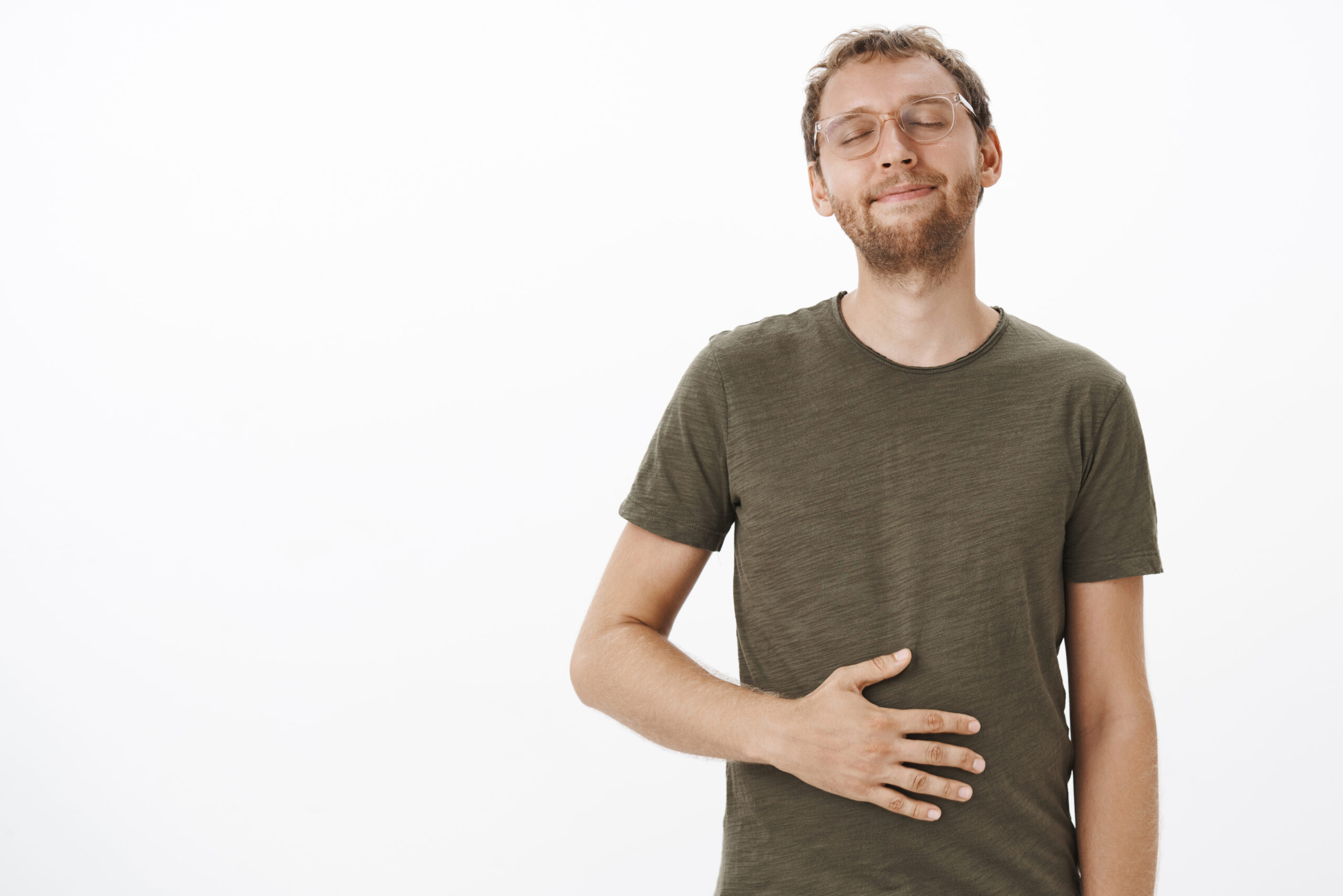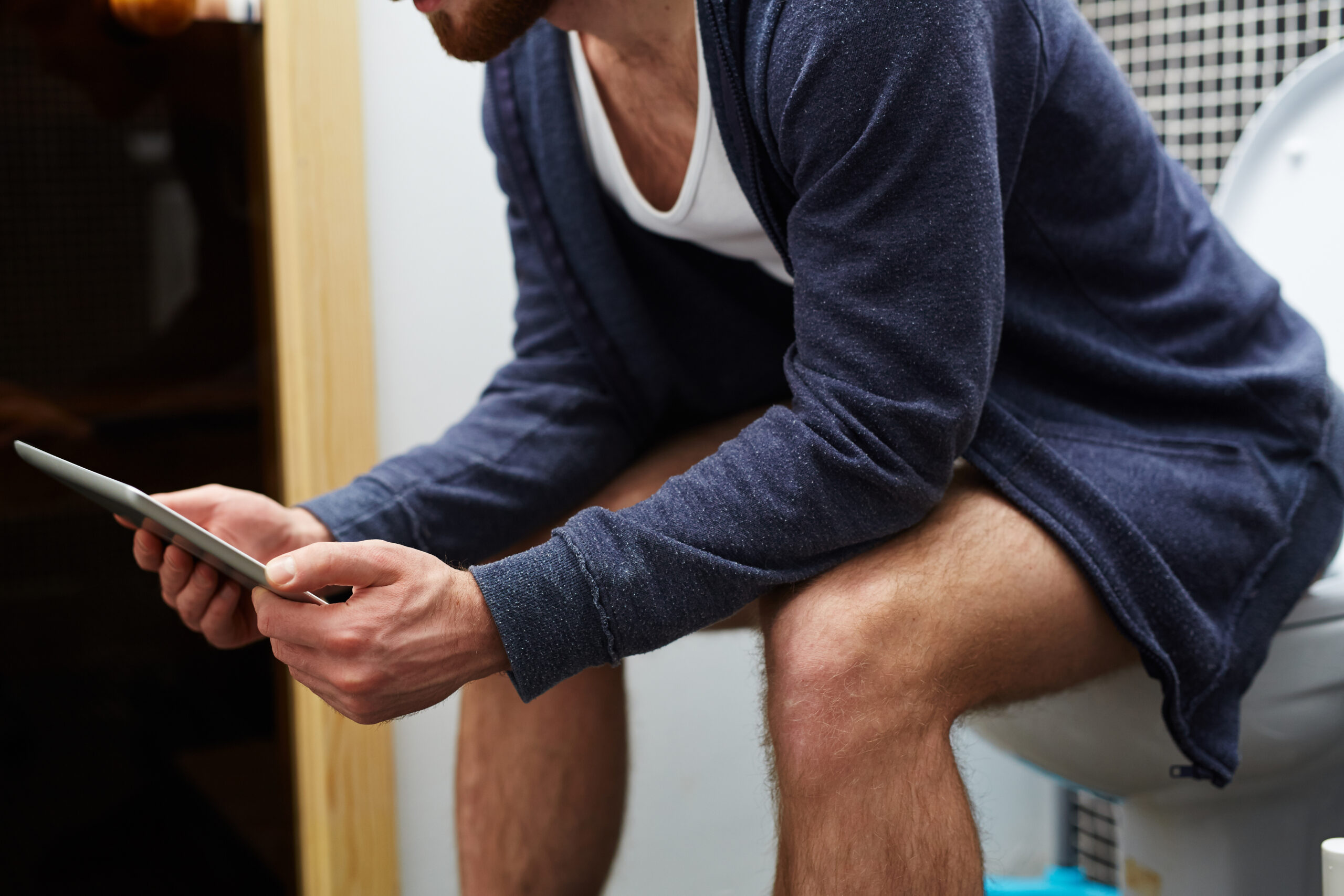It's important to remember that humans have not always relied on modern toilets; the process of elimination used to be quite different. In primitive times, people typically squatted to do their business, and the advancement of civilization transformed how we handle this natural function. Although anatomically and biologically – not much has changed.
Bowel movement![]() , also known as defecation, naturally removes unnecessary metabolic products from the body. It should be painless and effortless. Every day, unnecessary, undigested substances accumulate in our intestines, and they must be properly excreted from the body. Otherwise, the body is exposed to the development of many diseases.
, also known as defecation, naturally removes unnecessary metabolic products from the body. It should be painless and effortless. Every day, unnecessary, undigested substances accumulate in our intestines, and they must be properly excreted from the body. Otherwise, the body is exposed to the development of many diseases.
During the transport of undigested food products, not only the digestive system but also the parasympathetic and nervous systems are activated. The latter stimulates various processes related to the formation and accumulation of fecal mass in the colon and relaxes the external sphincter, which blocks the stool. The above methods are necessary to activate the excretory mechanism of already-formed feces.

It is estimated that problems with defecation affect from 2 to even 28 percent of the European population. However, considering that many patients ignore the discomfort associated with defecation and do not report them to a doctor, the data provided may be incomplete.
It should be noted that no clear standards are defining proper defecation. However, it is assumed that a healthy person can have a bowel movement more than twice a day and less often than every two days, provided that defecation does not cause discomfort and the stool has the correct color and consistency.
According to the Rome III Criteria![]() , irregular defecation can occur when there are less than 3 bowel movements per week for at least 6 months and more than 3 times a month. Increased frequency of bowel movements, i.e., having a bowel movement more than three times daily, is also abnormal. Occasional diarrhea is not a cause for concern; however, if diarrhea recurs more than 3 times a month, it can also be considered irregular defecation.
, irregular defecation can occur when there are less than 3 bowel movements per week for at least 6 months and more than 3 times a month. Increased frequency of bowel movements, i.e., having a bowel movement more than three times daily, is also abnormal. Occasional diarrhea is not a cause for concern; however, if diarrhea recurs more than 3 times a month, it can also be considered irregular defecation.
Problems with defecation![]() concern not only the frequency of defecation but also discomfort felt during defecation or abnormalities in the appearance of feces.
concern not only the frequency of defecation but also discomfort felt during defecation or abnormalities in the appearance of feces.
Constipation![]() is diagnosed in a patient who has had at least two of the following symptoms for at least 6 months, including more than 3 times a month in the last 3 months:
is diagnosed in a patient who has had at least two of the following symptoms for at least 6 months, including more than 3 times a month in the last 3 months:
Diarrhea![]() , on the other hand, is defined as the passage of loose stools more than 3 times a day.
, on the other hand, is defined as the passage of loose stools more than 3 times a day.
It is worth emphasizing that the cause of problems with defecation does not have to be a disease.
Functional disorders of the gastrointestinal tract, which are not linked to organic diseases, impact a considerable percentage of the population.
Having frequent bowel movements means that you’re pooping more often than you usually do. If you catch a rash difference in how frequently you’re pooping, you might wonder what’s transformed inside. It’s not necessarily cause for worry. Frequent bowel movements aren’t the same as diarrhea (loose stools).
Officially, there’s no “normal” number of bowel movements that everyone should be having.
Some of the more benign possible causes might be:
Difficulty with bowel movements can often be linked to irritable bowel syndrome, but poor eating habits play a significant role as well. A diet low in fiber, in particular, is a common cause of irregular bowel movements. Constipation can also be a symptom accompanying many diseases. In everyday clinical practice, doctors often deal with constipation in the course of metabolic diseases such as diabetes and hypothyroidism.
Electrolyte imbalances are another common factor that can lead to infrequent bowel movements. Furthermore, we cannot overlook the impact of opioid medications, as irregularity is among the most frequently reported side effects for those using these drugs.
An incorrect position during defecation![]() can lead to discomfort and various diseases:
can lead to discomfort and various diseases:

The squatting position for defecation involves bending the legs at a 35-degree angle relative to the body. In this posture, the upper thighs press gently against the abdominal cavity, creating a slight pressure on the colon and large intestine. This alignment helps the colon form a straight line, facilitating the proper expulsion of fecal matter. As a result, squatting not only speeds up the process of excretion but also requires significantly less effort – up to three times less – compared to sitting, which ultimately reduces the time spent in the bathroom.
In contrast, the legs are bent at a 90-degree angle to the torso during sitting defecation. This position allows the section between the colon and anus to maintain a straight line. However, it lacks the beneficial pressure from the thighs on the lower abdomen, compelling the body to exert additional effort to push the stool downwards.
Sitting while defecating can lead to various digestive issues, including hernias, irritable bowel syndrome, constipation, hemorrhoids, and even an increased risk of colon cancer.
Finding specialized toilet seats designed for squatting in many European countries can be challenging. However, this doesn’t need to be a problem, as modifying a standard toilet to ease this natural process is quite simple.
A stool or footrest placed next to the toilet can effectively serve this purpose. The footrest's height should be adjusted according to the toilet's height: for toilets measuring between 39 and 44 centimeters, a footrest height of about 23 centimeters is ideal; for those between 35 and 38 centimeters, approximately 18 centimeters will suffice.
It is important that we can position our legs in a 35-degree position relative to the torso. This will make the thigh muscles touch the lower part of the abdomen. Some supporters of proper defecation climb onto the toilet, sitting on it and squatting. However, such feats can end in an accident. Using a footrest is undoubtedly a more comfortable and safer solution that doesn’t require significant changes to your bathroom setup.
Issues with bowel movements often arise when the intestines are not functioning correctly, leading to significant discomfort. Such problems can manifest as having fewer than three bowel movements a week, struggling to pass stool, or experiencing a sensation of incomplete evacuation.
Since the cause of these disorders can be both an inappropriate diet or stress, as well as a severe illness, in the case of persistent constipation, it is worth seeking help from a doctor.
Suppose the interview with the patient and the essential examination do not explain the problem. In that case, the doctor refers for additional tests – biochemical (e.g., stool test for occult blood), endoscopic (e.g., rectoscopy, colonoscopy), ultrasound, or contrast examination of the large intestine. Only when the disease is ruled out can it be considered that these are so-called chronic constipation, the cause of which is poor nutrition and lifestyle.
It is worth remembering that long-term problems with defecation are not only a cause of poor well-being but can also lead to severe diseases of the rectum and anus (e.g., varicose veins of the anus and anal fissure). The retention of food residues also promotes inflammation of the large intestine, the formation of fecal stones, which can cause pressure sores and ulcers of the intestine, and even its obstruction.
Additionally, bowel movement issues can be associated with hormonal imbalances (such as hypopituitarism or hyperparathyroidism), electrolyte imbalances, or nerve and muscle disorders (for instance, following spinal injuries or in conditions like multiple sclerosis). The underlying cause may also include intestinal diseases (like blockages due to polyps, fecal stones, or post-inflammatory strictures) and certain medications, including antidepressants.
To deal with constipation![]() , it is usually enough to follow a few rules. Here are some simple ways to deal with bowel movement problems.
, it is usually enough to follow a few rules. Here are some simple ways to deal with bowel movement problems.
The large intestine is most active in the morning, so it's the best time to sit longer on the toilet. Unfortunately, the morning rush often causes you to hold back your bowel movement, so after a while, this reflex disappears.
To get your body used to regular bowel movements again, you must spend more time on the toilet every morning. It's worth starting your day by drinking a glass of lukewarm water with lemon or water in which dried plums have been soaked overnight – this stimulates the intestines to work.
Diet is significant and is often the cause of constipation. Hard-to-digest meals with a lot of animal fats and carbohydrates (white flour) stay in the stomach and intestines for a long time, contributing to bowel movement problems. Similar to a lack of fiber, which stimulates the digestive tract to work, increases the volume of stool, absorbs water, softens the stool, and makes it easier to pass through the intestines.

Limit the amount of products that slow down the emptying of the intestines – including white bread, rice, semolina, puddings, chocolate, cocoa, strong black tea, and red wine.
However, introduce more products into your diet that stimulates intestinal peristalsis (vegetables and fruit, wholemeal bread, groats, fermented milk products – sour, kefir, yogurt).
Remember that foods containing a lot of fiber must be introduced gradually, and the body must get used to them – too sudden a change in diet can cause abdominal pain and flatulence.
One cause of constipation is too little fluid intake. To defend itself against dehydration, the body absorbs water from the intestinal contents, and then a dry and hard mass remains in the intestine, which is difficult to excrete.
During the day, the body should be provided with approx. 2.5-3 liters of fluids. This amount also includes soups or juices found in vegetables and fruits. In addition to meals, it is best to drink weak tea (which aids digestion) and non-carbonated water.
A sedentary lifestyle weakens the abdominal muscles responsible for proper bowel movements. Daily walking, cycling, swimming, or regular, not-too-strenuous gymnastics can improve this.
Stress affects the functioning of the so-called vegetative nervous system, which regulates the functioning of all internal organs. Long-term tension or mental stress can contribute to digestive disorders and constipation. A walk, a good movie, yoga exercises, or a warm aromatic bath are all good ways to calm your emotions and relax your muscles.
You can use laxatives if other methods fail. Remember that they must be used very carefully. Their long-term use makes the intestines lazy, and they may have trouble returning to their proper pace after discontinuing the preparation.